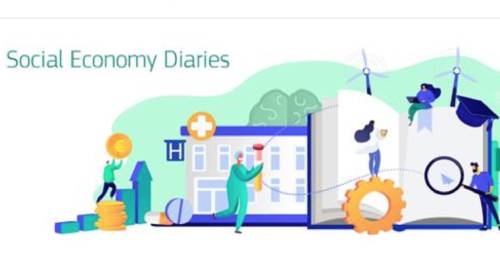Social entrepreneurs in Europe can now share their story via the Social Economy Diaries, a new initiative of the Social DG GROW Unit F2 under the European Commission.
The European Commission’s Platform Social Economy Community brings together actors in the European social economy field around a range of initiatives and activities. One of the initiatives on the platform is the Social Economy Diaries.
The Social Economy Diaries is a collection of stories about the impact that the social economy has. The idea behind the initiative is to show how a resilient and regenerative form of economy is not only possible, it is in fact already a reality.
By sharing their stories, social entrepreneurs are helping to show, that it makes sense to think beyond profit. At the same time, they show that it is all kinds of people from all over the world who are working to meet some of the great challenges facing the world community.
The stories also help to give decision-makers and advocates of a sustainable economy a greater voice.
If the social entrepreneurs who write the stories give their consent, they will be shared via the Social Economy Community’s social media and a selection of the stories will also be edited and published as “open diaries” in a small online booklet, that can be downloaded, and that will also be distributed to decision-makers, citizens, opinion leaders and other entrepreneurs, as part of the European Commission’s policy activities.
The stories can be told by social entrepreneurs, partners or employees, and if you choose to share your story, you will be asked a series of questions that will help you tell and structure the story. It is e.g. questions like, where does the story take place, what impact has it had, and has it addressed a societal problem?
It takes about 20 minutes to share its story.
Read more and share your story here
This publication has been prepared within SENBS project No. 2020-1-EE01-KA204-077999. The content of this publication is the sole responsibility of the project coordinator and may not always reflect the views of the European Commission or the National Agency.
















Leave A Comment